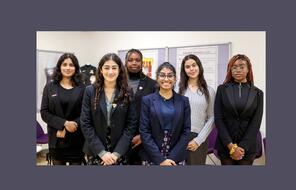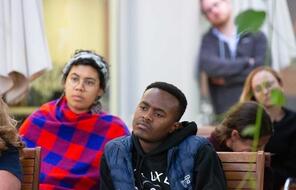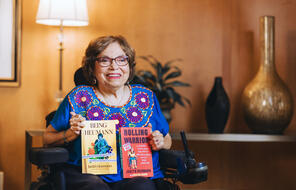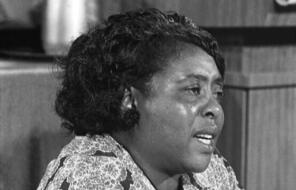
Allyship in the Classroom: Trans Awareness Week
While the total number of hate crimes has fallen over the past year, the Home Office reports that hate crimes against transgender people have risen by 11%, and in the past five years by 186%. 1
These statistics are shocking, but a quick scan of headlines relating to trans issues in the mainstream press shows they are hardly surprising. Over the past decade, media interest in trans issues has surged, with dangerous tropes and stereotypes becoming increasingly mainstream and engendering a hostile environment for young trans people.
Trans Awareness Week (13-19 November) and Trans Remembrance Day (20 November) represent an opportunity for teachers to reflect on present-day transphobia and consider how to create an affirming classroom that supports the inclusion of trans students. For teachers to begin to create a safe space for trans students, they must start by deepening their knowledge of the current moment and the prominent issues that trans people face day-to-day.
In her best-selling book The Transgender Issue, Shon Faye charts how political and media attacks on trans people have escalated over the past decade. 2 Faye reports that in 2020 alone The Times and The Sunday Times together ran over 300 articles, almost one a day, on trans people. 3 This coverage is completely disproportionate to the number of trans people that actually live in the UK, which by any measurement represent less than 1% of the population. 4
This sustained coverage in the media and online, where discriminatory tropes that depict trans people as a danger to society are circulated (including by high-profile figures), has created an environment that is normalising anti-trans sentiment and behaviour.
The circulation of discriminatory tropes, many of which depict trans people as dangerous, is reminiscent of the moral panic targeted towards lesbian and gay people during Section 28. It also distracts from what is the bleak reality for most trans people in the UK, who face disproportionately higher rates of self-harm, discrimination, unemployment, mental health issues, NHS wait times and suicide. In 2017, Stonewall research found that 45% of trans young people had attempted suicide at least once, and more recently Just Like Us reported that 78% of trans people have been bullied at school. 5
Within this context, it is important to provide students with positive depictions of transness, and to remind them that trans people have always existed in some form and that hostility towards gender nonconforming people is a recent phenomenon.
Historical accounts, like Leslie Feinberg’s Transgender Warriors, can give students a sense of perspective. Feinberg highlights how in many ancient cultures trans people were considered sacred; the native American two-spirit people are an example of this. Feinberg challenges the naturalness of gender by showing that only with the spread of western colonialism did the binary gender system become entrenched and naturalised. Similarly, an alternate history can be found in learning about the Weimar Republic and the relative sexual and gender freedoms of pre-Nazi Germany, where trans and gender nonconforming people found support and healthcare at Magnus Hirschfeld’s Institute for Sexual Science.
Without this historical perspective, it is easy for people to resort to essentialist thinking and assume that the social world they inhabit is ‘natural’ and fixed.
These histories show that the current hostility projected onto trans people today is not timeless, a sentiment expressed at this year’s Trans Pride by trans activist June Lam:
‘This current period of western modernity in which trans people are feared and despised, is just a tiny insignificant blip, a small aberration in the timeline of human existence.’
Below, we have collected a selection of resources below for teachers to build an affirming, welcoming class community for students, especially trans and non-binary students, and create a culture of allyship in the classroom.
- 1New data: Rise in hate crime against LGBTQ+ people continues, Stonewall slams UK Gov ‘inaction', Stonewall, 5 October 2023 (accessed 8 November 2023)
- 2The Transgender Issue, Shon Faye, Penguin, 2021, 5.
- 3Ibid. 6
- 4Ibid. 9
- 5Almost half of trans pupils in UK have attempted suicide, survey finds, The Guardian, 27 June 2017 (accessed 8 November 2023); Positive Futures Report, Just Like Us, June 2023, 78.
Creating a Supportive and Reflective Classroom Community
Introduction to Trans Terms
- Gender Identity for Beginners, Amnesty
- What is Transphobia?, Trans Actual
Good Practice Guides and Actions
- Ten steps to tackling homophobic, biphobic and transphobic language in your school, Stonewall
- Good Practice When Working With Young Trans and Non Binary People, Gendered Intelligence
- Guide to Being an Ally to Transgender and Nonbinary Young People, The Trevor Project
Trans Histories
- Trans and Gender-Nonconforming Histories, Historic England
- A brief history of transgender issues, Prof Stephen Whittle, The Guardian
- A Map of Gender-Diverse Cultures (interactive), PBS
Upcoming CPD
- Supporting Teachers Address Anti-LGBTQ+ Language in the Classroom, Facing History and Ourselves
- Trans Solidarity Series, Diverse Ed














